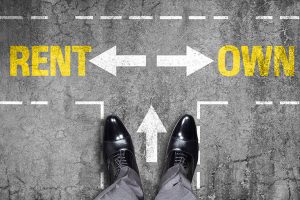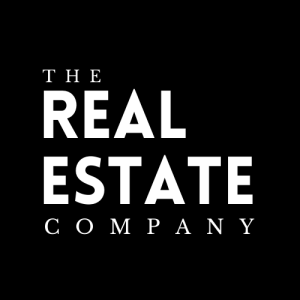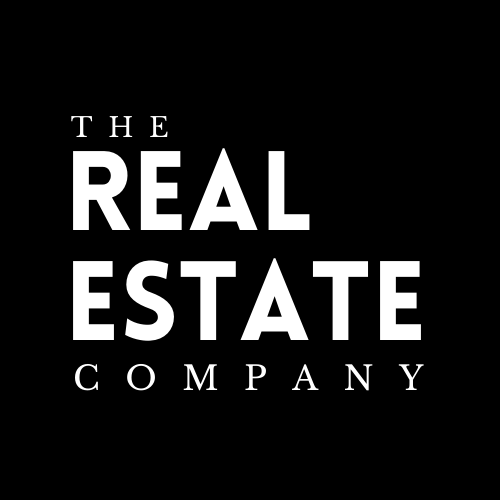 Choosing between renting and buying a home is a significant decision that requires careful consideration. Many people view renting as “throwing money away” while buying is seen as an investment. However, the rent-vs-buy question is more complex than a one-size-fits-all approach. Factors such as lifestyle, age, work situation, desired location, and long-term plans must be taken into account. Additionally, economic conditions, like inflation and interest rates, can greatly impact the cost of both renting and buying. In this article, we will explore the advantages and disadvantages of renting and buying, as well as important factors to consider when making this decision.
Choosing between renting and buying a home is a significant decision that requires careful consideration. Many people view renting as “throwing money away” while buying is seen as an investment. However, the rent-vs-buy question is more complex than a one-size-fits-all approach. Factors such as lifestyle, age, work situation, desired location, and long-term plans must be taken into account. Additionally, economic conditions, like inflation and interest rates, can greatly impact the cost of both renting and buying. In this article, we will explore the advantages and disadvantages of renting and buying, as well as important factors to consider when making this decision.
Renting a Home
Renting a home is a common and convenient option for many individuals. While renting may not provide the opportunity to build equity, it offers certain benefits and flexibility. One advantage of renting is that the landlord is responsible for expenses such as insurance, maintenance, repairs, property taxes, and homeowner’s association (HOA) fees. These costs are typically factored into the rent, relieving the tenant of direct financial obligations for these matters. Renting also allows for greater mobility, as tenants can easily relocate without the burden of selling a property.
On the other hand, renters face limitations in terms of personalization and control over the property. Renters are generally unable to make significant changes or improvements to the rented space without the landlord’s permission. Any improvements made benefit the landlord once the tenant moves out. Additionally, the increasing costs of rent can be a concern for many renters. However, experts predict that the rental market may experience a slowdown in the near future, as there is a significant number of multi-family units expected to enter the market.
Owning a Home
Owning a home offers a sense of permanence, stability, and the opportunity to build equity. Homeowners have the freedom to personalize and make changes to their property without seeking permission. Any improvements made can potentially increase the value of the home, allowing homeowners to benefit financially when they decide to sell. Homeownership also provides the opportunity to deduct mortgage interest payments and property taxes from income taxes, potentially resulting in tax savings.
However, owning a home comes with greater financial commitment, responsibility, and potential risks. The initial costs of purchasing a home, such as the down payment and closing fees, can be significant. Homeowners are also responsible for ongoing expenses, including mortgage payments, property taxes, homeowner’s insurance, maintenance, and repairs. Homeownership also carries the risk of property value depreciation, which can result in financial loss if the home is sold for less than its purchase price.
Renting vs. Owning: Key Differences
Renting and owning a home differ in several key aspects that should be carefully considered when making a decision. These differences include monthly housing payments, mortgage interest, property taxes, maintenance responsibilities, insurance, equity, lifestyle considerations, and peace of mind versus flexibility.
Monthly Housing Payment
-
- Homeowner: Homeowners make monthly mortgage payments, which typically consist of both interest and principal. These payments remain fixed for the duration of the loan, usually 30 years.
- Renter: Renters make monthly rental payments to their landlord or rental company. Rent payments are subject to potential annual increases.
Mortgage Interest
-
- Homeowner: Homeowners have the option to refinance their mortgage if interest rates decrease, potentially reducing their monthly payments. Additionally, homeowners can deduct mortgage interest payments from their income taxes.
- Renter: Renters do not have the option to refinance rental payments, and rent is not tax-deductible.
Property Taxes
-
- Homeowner: Homeowners pay property taxes directly to the taxing authority. These taxes can be deducted from income taxes, up to a certain limit.
- Renter: Renters typically do not pay property taxes directly. However, landlords may include property taxes as part of the rent calculation.
Maintenance
-
- Homeowner: Homeowners are responsible for the maintenance and repairs of their property, including appliances, plumbing, and structural elements.
- Renter: Renters are generally not responsible for maintenance and repairs. Landlords are legally required to maintain the property.
Insurance
-
- Homeowner: Homeowners are required to have homeowners insurance, which covers the dwelling, personal belongings, and liability. Homeowners insurance tends to be more expensive than renters insurance.
- Renter: Renters are encouraged to have renters insurance, which covers personal belongings and liability. Renters insurance is typically more affordable than homeowners insurance.
Equity
-
- Homeowner: Homeowners have the opportunity to build equity as their property appreciates in value over time. Equity can be accessed through various loan options or realized when selling the property.
- Renter: Renters do not build equity since they do not own the property.
Lifestyle
-
- Homeowner: Homeownership is suitable for those who are ready to settle down for a long period, have a stable job, and desire to put down roots.
- Renter: Renting offers flexibility for those who prefer to live elsewhere, lack job security, or are not ready to commit to a specific location.
Peace of Mind vs. Flexibility
-
- Homeowner: Homeowners have the peace of mind of owning their home and the ability to control its fate. However, selling a home requires careful planning and time.
- Renter: Renters have the flexibility to easily move to another location. However, they do not have the same level of control over the property.
Finances
-
- Homeowner: Homeownership requires financial stability, a down payment, good credit, and the ability to make timely mortgage payments. Homeownership provides leverage and potential financial gains.
- Renter: Renting has less stringent financial requirements, but renters still need to demonstrate financial stability, pay a security deposit, and make regular rent payments.
The Costs of Renting vs. Owning
The cost comparison between renting and owning largely depends on the duration of stay and prevailing economic conditions. Analyzing the costs of renting versus buying a $300,000 home can help shed light on the financial implications. It is important to consider both the initial and first-year costs for each scenario.
Below is a table summarizing the initial and first-year costs for both renting and buying a home in Maryland:
| Renting | Buying | |
|---|---|---|
| Initial Costs | Rent security deposit | Down payment, closing costs |
| First-Year Costs | Monthly rent, insurance | Mortgage payment, taxes |
Please note that this table serves as an example, and costs can vary depending on location, property value, and individual circumstances. Additionally, the table does not account for potential returns from investing the down payment and closing costs in the stock market.
Other Factors to Consider
While cost is an important factor, there are additional considerations when deciding between renting and buying a home. These include financial readiness, location, housing market conditions, job security and satisfaction, and personal life goals.
Financial readiness involves assessing one’s ability to meet the financial requirements of homeownership, such as a down payment, emergency fund, and good credit score. Location plays a crucial role, as housing market conditions and availability vary. Understanding the local housing market, interest rates, and housing regulations is essential in making an informed decision.
Job security and satisfaction also come into play. If uncertain about job stability or not satisfied with current employment, it may be wise to prioritize job concerns before committing to homeownership. Additionally, personal life goals, such as desired mobility or a nomadic lifestyle, can influence the decision to rent or buy.
Should You Rent or Buy? Questions to Ask
To determine whether renting or buying is the right choice, it is important to ask yourself the following questions:
- How long do you plan to stay in your current location? If you plan to relocate within the next few years, renting may be more suitable. However, if you are committed to staying for at least 3 to 5 years or more, buying may be advantageous.
- What is your financial situation? Consider your ability to meet the financial requirements of homeownership, including a down payment, closing costs, and ongoing mortgage payments. Good credit and stable finances are also crucial factors.
- What is the state of the housing market in your area? Assess housing market conditions, availability, and pricing trends. This information can help determine whether it is a favorable time to buy or if renting may be a better option.
- What is your job security and satisfaction level? If your job is not stable or satisfying, it may be wise to focus on career concerns before committing to homeownership.
- What are your personal life goals? Consider your desired lifestyle, mobility, and long-term plans. Renting may be more suitable if you value flexibility and the ability to easily relocate.
It is important to take the time to carefully consider these questions and conduct thorough research before making a decision. Renting and buying both have their advantages and disadvantages, and what works for one person may not work for another. Ultimately, the choice between renting and buying should align with your individual circumstances, goals, and financial situation.
Deciding whether to rent or buy a home is a complex and personal decision. It involves weighing the advantages and disadvantages of each option, considering financial readiness, evaluating the housing market, and aligning with personal goals. Renting offers flexibility and reduced responsibility, while buying provides stability, potential equity, and the ability to personalize a home. By carefully considering the factors discussed in this article and asking the right questions, individuals can make an informed decision that suits their unique circumstances and aspirations. Remember, this decision should not be rushed, as it has long-term implications for your financial well-being and lifestyle.
Contact us (859) 979-1508) for a free consultation!
Buy | Sell | Rent | Build
—
 About The Real Estate Company
About The Real Estate Company
Residential and Multi-family Realty Services for Lexington, Richmond, and Surrounding Areas. We close over 40 million in sales each year. Our love for Central Kentucky and our clients is the key to our success. We provide careful guidance, persistence, and savvy marketing to deliver results for our clients time after time.
> Learn More
